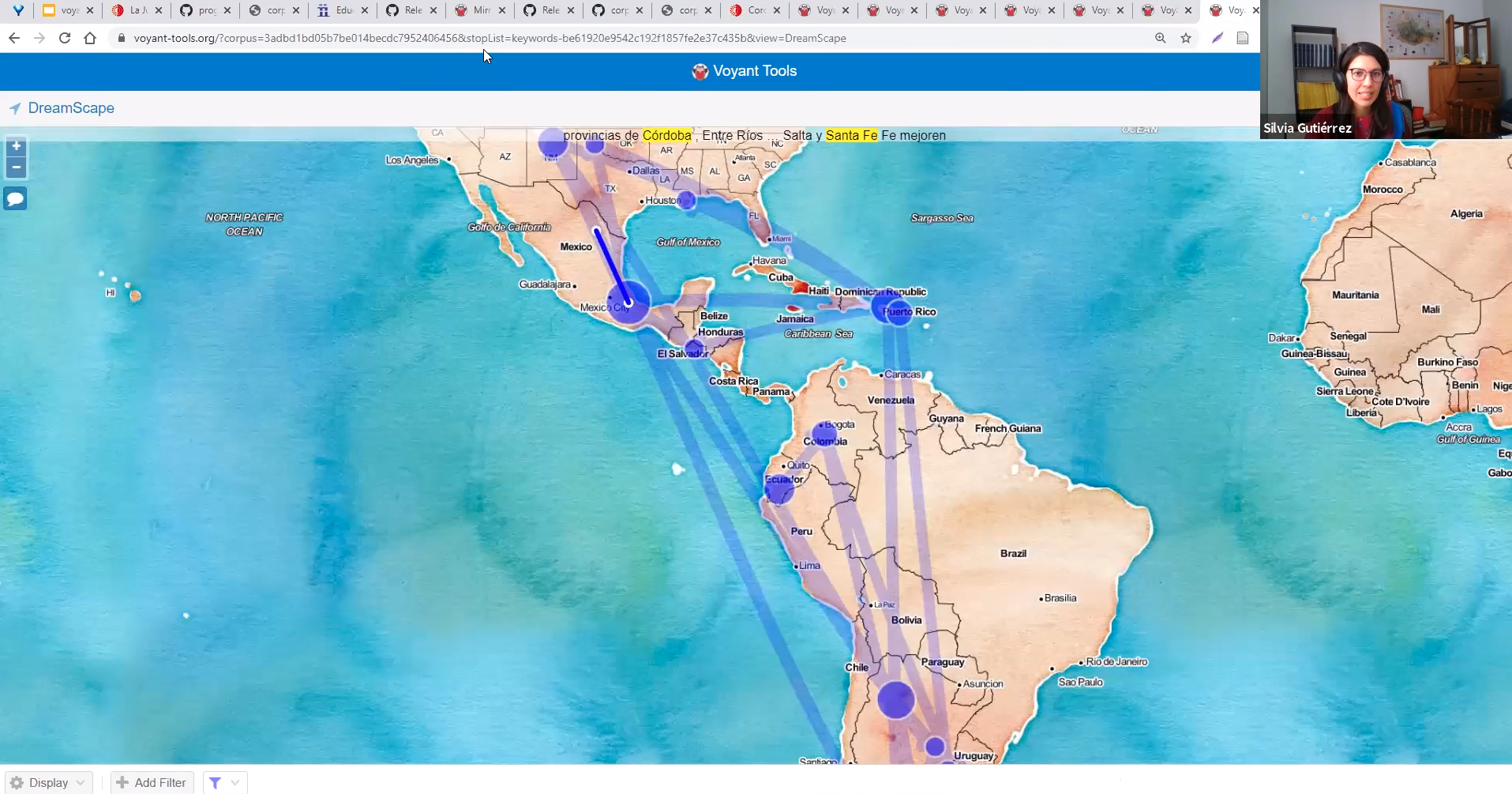Open Data Day: Datos Abiertos y Humanidades Digitales - Event Report
- Date
- Saturday 6 March 2021
- Time
- 11:00 (CST)
- Location
- Online, Chile (The Americas)
- Organisers
- Riva Quiroga, Programming Historian
On Saturday 6th March 2021, the eleventh Open Data Day took place with people around the world organising hundreds of events to celebrate, promote and spread the use of open data. Thanks to generous support from key funders, the Open Knowledge Foundation was able to support the running of more than 60 of these events via our mini-grants scheme.
This event received an Open Knowledge Foundation mini-grant thanks to support from Microsoft.

How did your event celebrate open data?
We organised two workshops about analysing educational data in Latin America.
The first workshop showed participants how to analyse text data using a software called Voyant Tools. Participants learned how to process a collection of open access texts to build a corpus, and how to analyse them to identify patterns and pressing issues regarding education in Latin America during the Covid-19 pandemic.
The second workshop focused on data visualisation using Python. Participants learned how to critically analyse the origin and quality of the open data, and the possibilities that Python offers to make significant data-driven narratives to highlight pressing issues in our region, like educational enrolment in Colombia.
En el día de los #DatosAbiertos nuestra editora @rivaquiroga y nuestros colaboradores @espejolento y @jairoamelo están ofreciendo un taller sobre #HumanidadesDigitales pic.twitter.com/N2E4HXrLou
— Programming Historian (@ProgHist) March 6, 2021
Lessons learned from your event
Maybe the most important lesson learned was the relevance of this kind of event. Not only because it allowed us to identify pressing issues regarding education in the context of the Covid-19 pandemic (gender inequalities, access to technology, etc.) and education enrolment, but also because it showed the need of workshops where people can learn tools and techniques to analyse open data using open software.
Why do you love Open Data Day?
Open Data Day is an event that allows us to build a community of practice and highlight pressing issues in our region (Latin America), while learning new tools and techniques.
Did you or your team produce any resources (datasets/tools/maps/code/etc) during your Open Data Day celebrations?
On our GitHub repository you will find all the resources we produced (datasets, code, Jupyter notebook, etc.): https://github.com/programminghistorian/opendataday-2021
